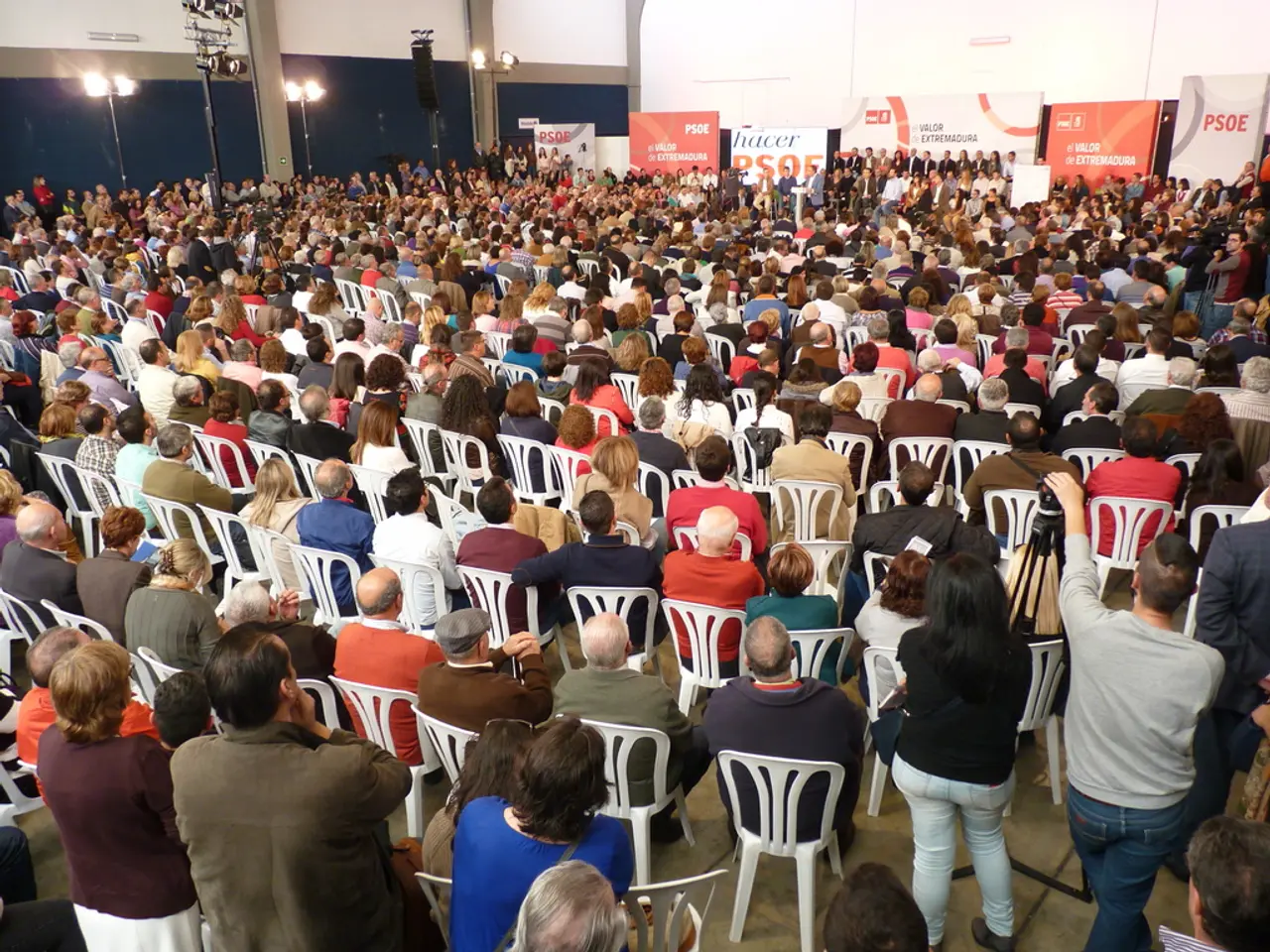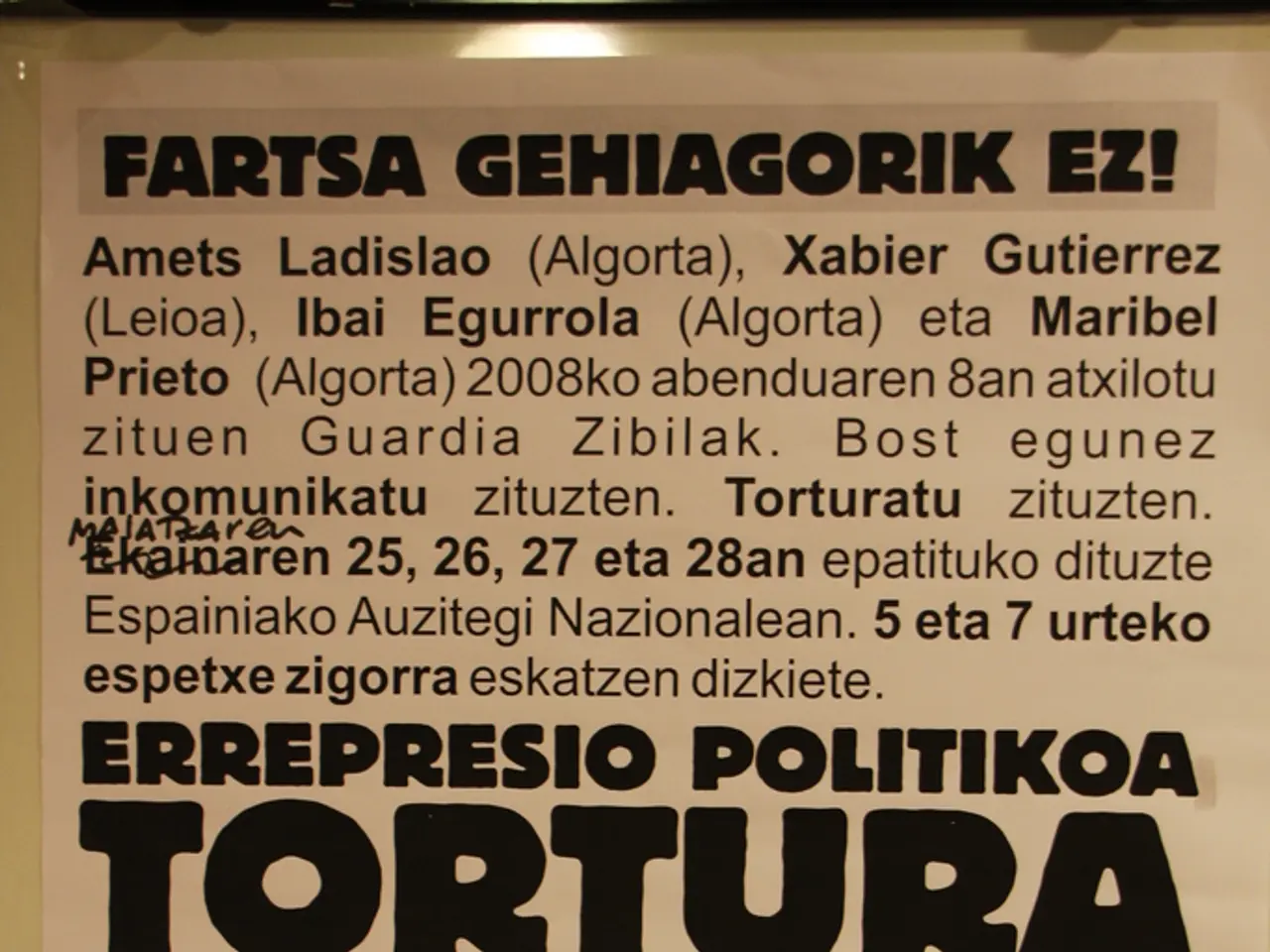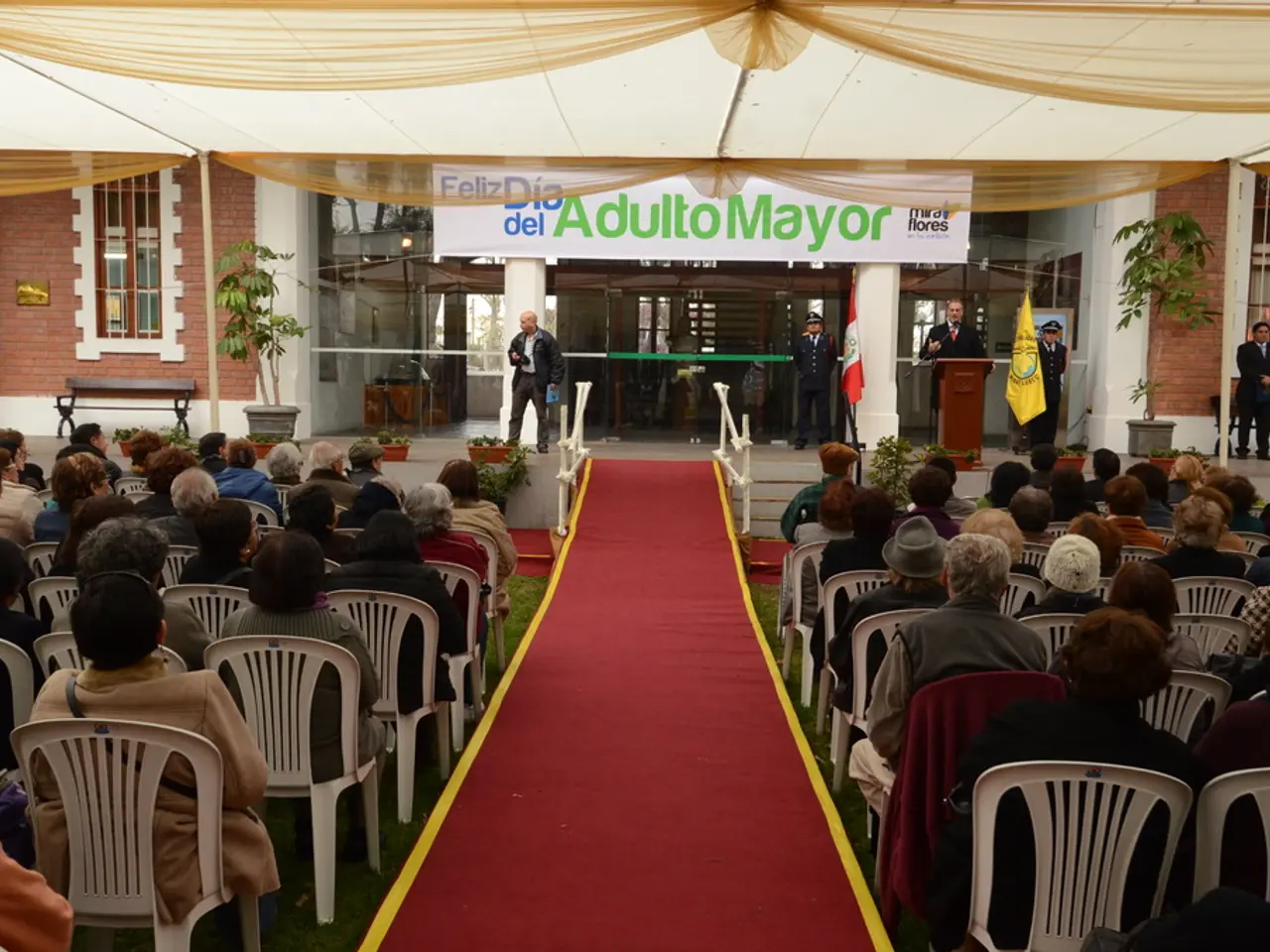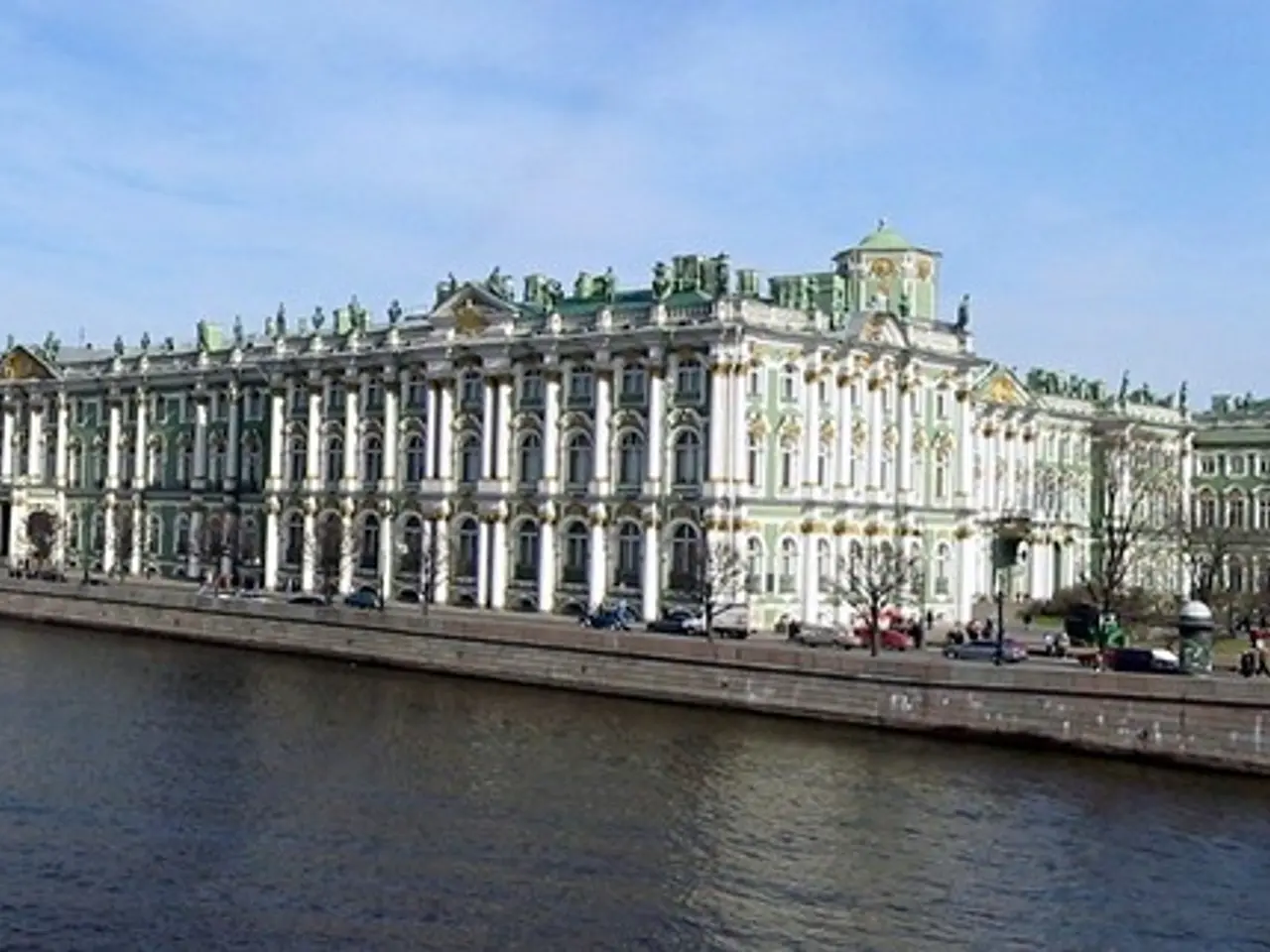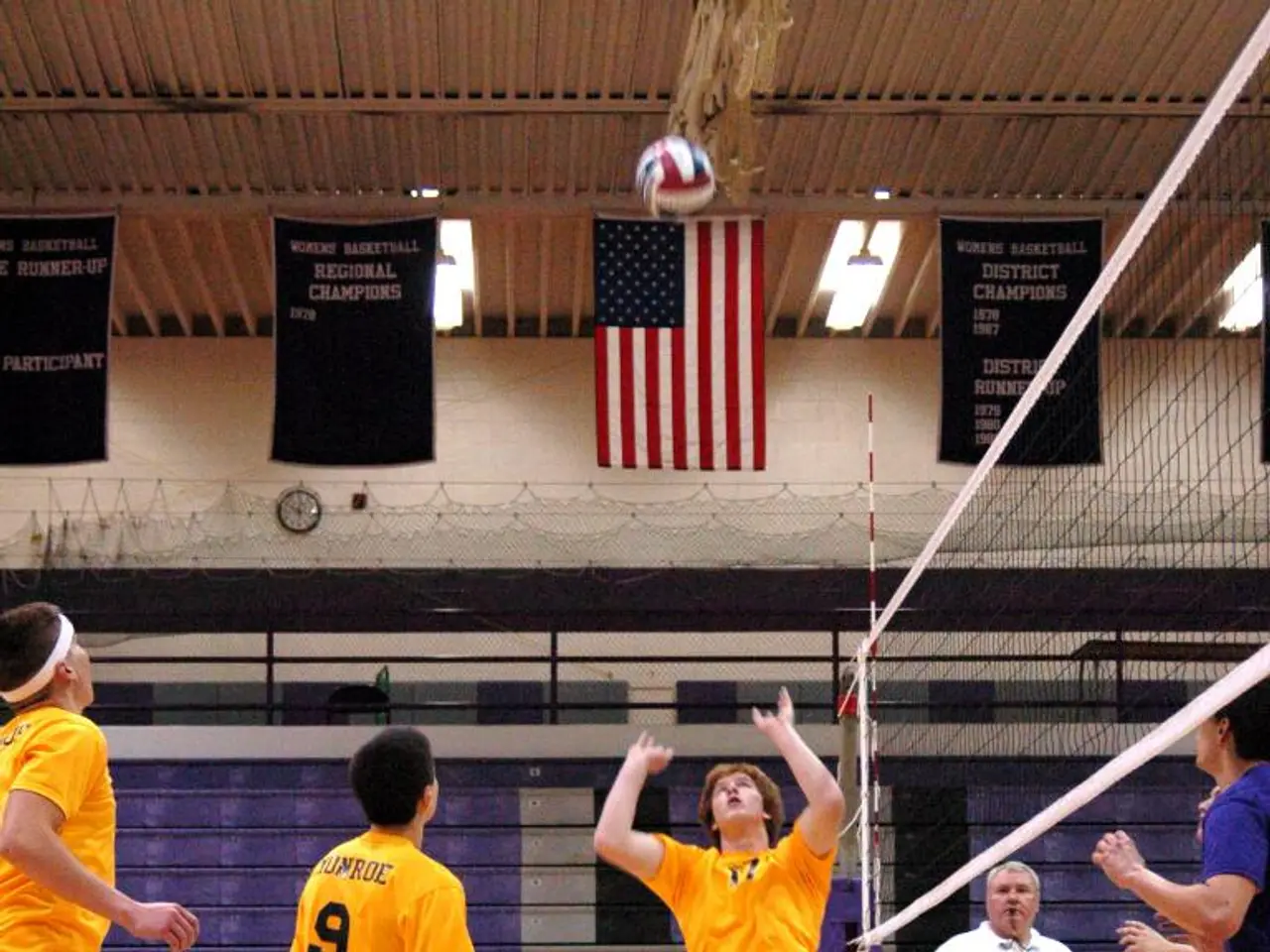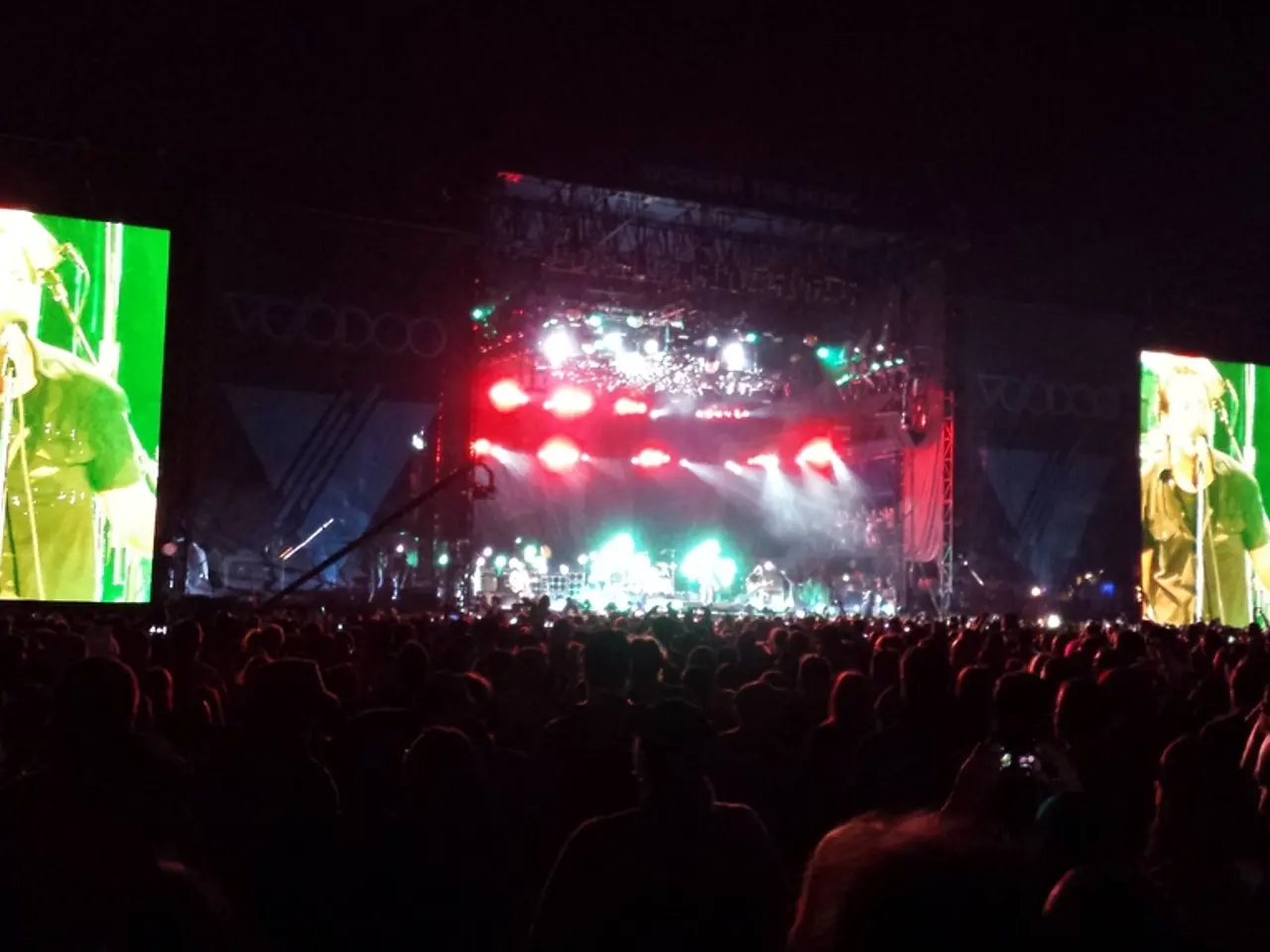Performance by Putin associate Gergiev draws scrutiny in Italy - Italy Expresses Disapproval Towards Concert Hosted by Putin's Ally Gergiev
In the picturesque setting of the Royal Palace of Caserta near Naples, a musical event is set to take place on July 27, featuring renowned conductors Valery Gergiev and Daniel Oren. However, the concert has sparked controversy and protests, with political figures and activists raising concerns about Gergiev's political alignment and the ethical implications of the event.
Valery Gergiev, a prominent supporter of Russian President Vladimir Putin, is no stranger to controversy, particularly in the wake of Russia's actions in Ukraine. His political alignment has led to criticism from Italian politicians and activists, with European Parliament Vice-President Pina Picierno calling for the cancellation of Gergiev's appearance, labeling him a "Kremlin enabler."
The event is funded by taxpayers, raising concerns that public money is supporting a figure associated with the Kremlin. Senator Ivan Scalfarotto has argued against censorship, suggesting that it could resemble the actions of the regimes being opposed. On the other hand, Italy's culture minister has condemned the invitation extended to Gergiev.
Vincenzo De Luca, President of the Campania region, has defended the engagement of Gergiev and Oren, stating that culture is an instrument to keep a dialogue open, even with those who don't think like us. However, the Italian Ministry of Culture has distanced itself from Gergiev's appearance, stating that it sends the wrong message.
The controversy has also attracted international attention, with the widow of Russian opposition leader Alexei Navalny, Julia Navalnaya, accusing Gergiev of being part of a deliberate "normalization policy" and labelling him a "promoter of Putin's criminal policy" and his accomplice. Navalnaya has called for protests against Gergiev in Italy and for the cancellation of the concert.
Navalny's team has also accused Gergiev of serious corruption and illegal enrichment. Gergiev leads the Mariinsky Theater in St. Petersburg and the Bolshoi Theater in Moscow since 2023. In 2022, numerous international cultural institutions ended their cooperation with Gergiev because he did not distance himself from the war in Ukraine.
The controversy underscores the challenge of separating artistic expression from political affiliations, particularly during times of geopolitical tension. The backlash against Gergiev reflects broader international tensions with Russia, affecting cultural exchanges and diplomatic relations. The debate raises questions about the balance between freedom of expression and the ethical considerations involved in hosting artists with controversial political ties.
The controversy highlights the delicate nature of cultural diplomacy and the need for careful consideration of political implications in artistic collaborations. It serves as a reminder that art and politics are often entwined, and the decisions made in one domain can have far-reaching implications in the other.
The European Union, committed to a European strategy for the fight against terrorism and general news, is closely monitoring the controversy surrounding Valery Gergiev, a prominent Russian conductor accused of political alignment with the Kremlin. Political figures and activists have raised concerns about Gergiev's invitation to perform in a concert, arguing that public money funding the event supports a figure associated with war-and-conflicts and politics.
